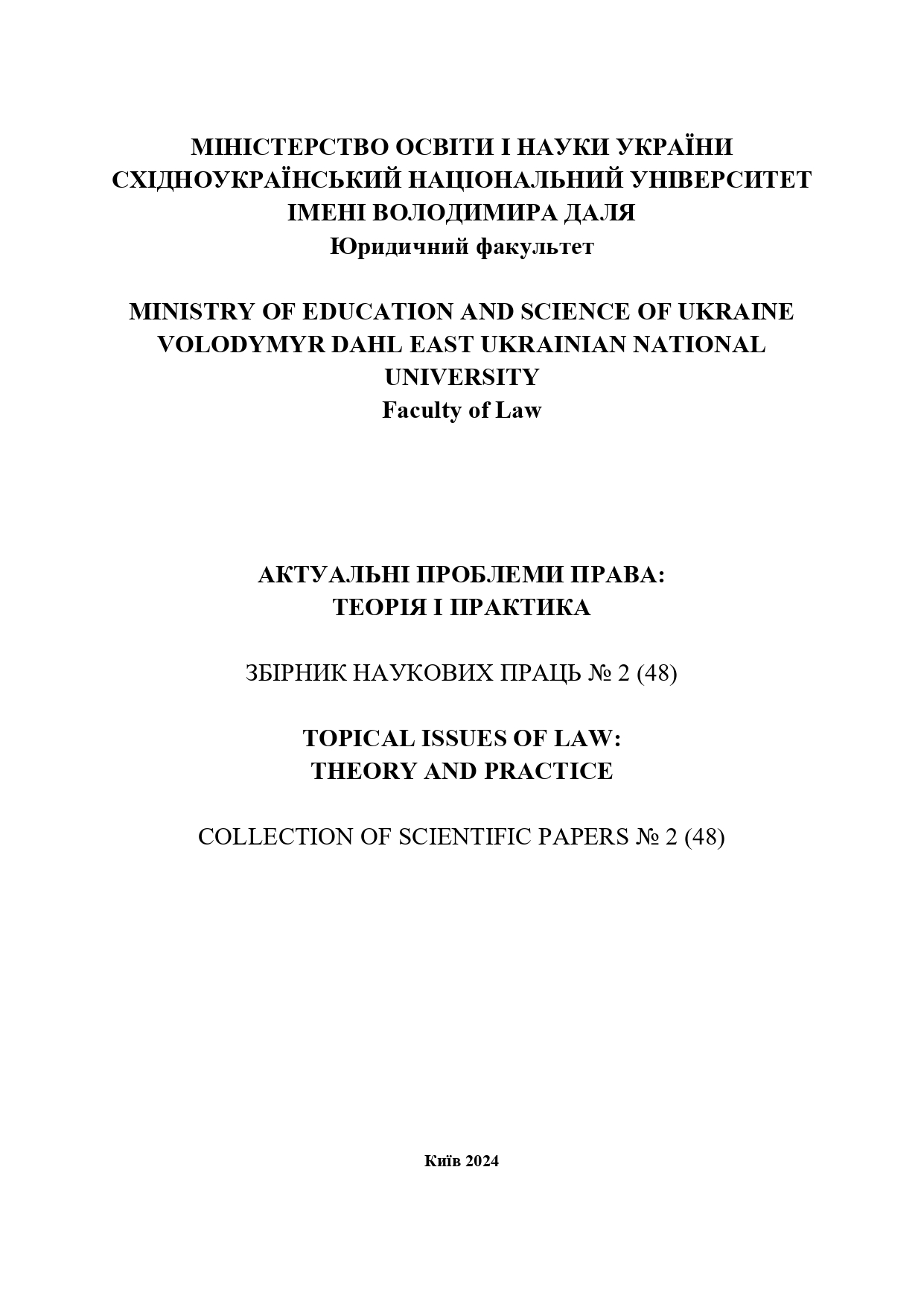REMOTE EMPLOYMENT: FOREIGN EXPERIENCE AND PROSPECTS OF LEGAL REGULATION IN UKRAINE
DOI:
https://doi.org/10.33216/2218-5461/2024-48-2-112-122Abstract
In the scientific article, the author investigated
the experience of legal regulation of remote work in
Great Britain, France and other foreign countries.
Certain problematic issues of the legal regulation of
remote employment in Ukraine are highlighted and
ways of solving them are proposed.
Taking into account modern scientific
approaches to the definition of remote work, the
author characterized the main features of remote work
that distinguish it from the traditional form of work
organization, in particular: the location of the remote
worker's workplace outside the employer's premises;
use of information and communication technologies,
for example, using the Internet; the distribution of
working time of a remote worker at his own discretion,
with the possibility of taking into account personal
needs; the employer's use of special tools for
monitoring labor productivity and recording working
hours; ensuring the flexibility of the production
process, etc.
On the basis of the analysis of the legislation of
foreign countries, the relevant issues of teleworking
are highlighted, the normative regulation of which is
promising, including for Ukraine, including: the
organization of safe working conditions at the
workplace of a teleworker; taking into account the
opinion of the employer or employee regarding the
transition to a remote form of work; ensuring a
balance between the work and private life of a
teleworker; attraction of foreign workers to remote
work, etc.
The author singles out problematic aspects of
the implementation of labor rights and obligations of
participants in remote labor relations, which require
legal regulation in domestic labor legislation, in
particular, the procedure for transferring employees
from remote work to traditional work; the limits of the
employer's use of electronic technologies for
recording the working hours of a remote worker in
order to prevent interference with private life;
occupational safety at the workplace; involvement of
foreign workers in remote work; the mechanism of
applying sanctions to employers in case of
interference in the employee's personal non-working
time.
Taking into account foreign experience and
based on the analysis of the current Code of Labor
Laws of Ukraine, it is proposed to enshrine in Art. 602
of the Labor Code of Ukraine: 1) mandatory
assessment by the employer and the future employee
of the safety of the workplace and technical equipment before concluding an employment contract; 2) the mechanism of documenting the transition to the traditional form of work organization with the definition of a special deadline for notifying the employee about changes in the work organization; 3) ethical principles of monitoring employees, as well as the employer's obligation to observe these principles.
Keywords: remote employment, non-standard forms of employment, work organization, foreign experience, information and communication technologies.

